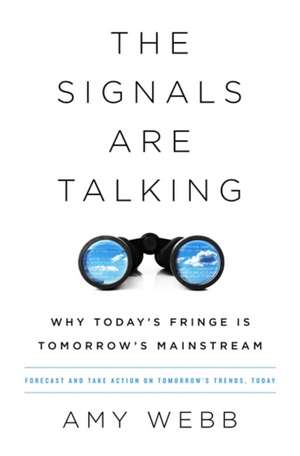The Signals Are Talking: Why Today's Fringe Is Tomorrow's Mainstream
Autor Amy Webben Limba Engleză Paperback – 6 mar 2018
Preț: 76.32 lei
Preț vechi: 100.18 lei
-24% Nou
Puncte Express: 114
Preț estimativ în valută:
14.61€ • 15.86$ • 12.27£
14.61€ • 15.86$ • 12.27£
Carte disponibilă
Livrare economică 01-15 aprilie
Livrare express 15-21 martie pentru 46.00 lei
Preluare comenzi: 021 569.72.76
Specificații
ISBN-13: 9781541788237
ISBN-10: 1541788230
Pagini: 336
Dimensiuni: 142 x 211 x 23 mm
Greutate: 0.3 kg
Editura: PublicAffairs
Colecția PublicAffairs
ISBN-10: 1541788230
Pagini: 336
Dimensiuni: 142 x 211 x 23 mm
Greutate: 0.3 kg
Editura: PublicAffairs
Colecția PublicAffairs
Notă biografică
Descriere
The renowned futurist's powerful methodology - tested and pragmatic - for anticipating trends, seeing the future, and making better informed decisions in the wake of ever-faster disruption
